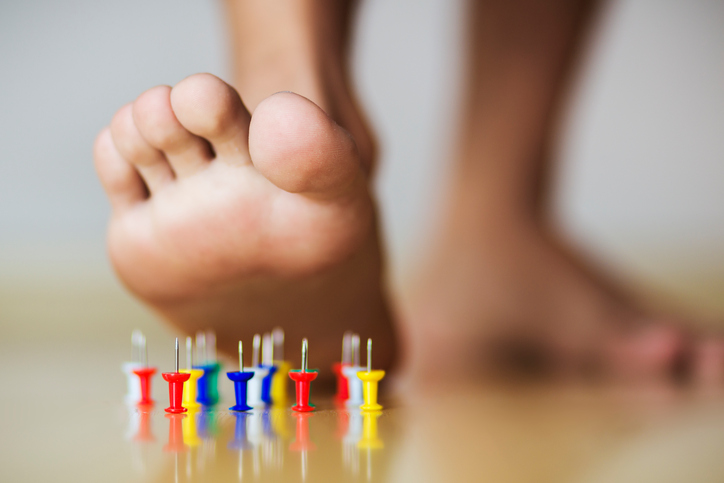This month we’re focusing on bringing awareness to Peripheral Neuropathy, a condition that more than 20 million people live with in the United States.
What is peripheral neuropathy?
Peripheral neuropathy, commonly referred to as neuropathy, is a condition where nerve damage causes numbness, weakness, and pain, typically in the hands and feet. Neuropathy can be caused by a compilation of medical conditions, including infections, tumors, disorders, autoimmune diseases, and most common, diabetes.
However, other possible factors of neuropathy include alcoholism, certain medications, nerve trauma, vitamin deficiencies, and exposure to poisons.
What are the signs and symptoms of neuropathy?
Each nerve in our bodies has a specific function, so symptoms depend on which nerves are affected.
You can classify nerves into three different categories:
- Sensory nerves: controls sensations like temperature, vibration, pain, or touch.
- Motor nerves: controls muscle movement.
- Autonomic nerves: controls functions like blood pressure, digestion, heart rate, and bladder.
Neuropathy can cause:
- Gradual numbness, tingling, or prickling in your hands and feet that can travel up into your limbs
- Sharp, throbbing, or burning pain
- Sensitivity to touch
- Pain when there shouldn’t be pain, like after putting weight on your hand or foot
- Falling or random lack of coordination
- Feeling like you’re wearing gloves or socks when you’re not
- Muscle weakness
- Paralysis
If autonomic nerves are affected, signs may include:
- Bowel, bladder, or digestive issues
- Heat intolerance
- Excessive sweating or not being able to perspire
- Changes in blood pressure
- Dizziness or lightheadedness
Visit your healthcare provider if you notice unusual tingling, pain, or weakness in your hands and feet. Early diagnosis is crucial for controlling your symptoms and preventing further damage.
Click here to read more about how neuropathy can be prevented.
How do you treat neuropathy?
Depending on what causes the neuropathy, it can be treated and even reversed in some cases with natural treatments like vitamin therapy, improved diet, cutting out alcohol, or quitting medication causing it.
Popular medications used to treat neuropathy include narcotics, local anesthetic, analgesics, and anticonvulsants. Because some of these drugs are highly habit-forming and can become addicting, it’s not uncommon for people to become dependent on it or abuse the medication.
If you or a loved one need help recovering from an addiction, we are here to help. Located inside our hospital is Hope Restored Treatment Center, a detox program dedicated to helping our patients live a clean and sustainable sober life. We have the capacity to not only treat your addiction but also find a healthier treatment plan for your neuropathy. To learn more, visit our website or give us a call at 1-833-862-7236.
Disclaimer: As a service to our readers, SE Texas ER & Hospital and Nutex Health state no content on this site, regardless of date, should ever be used as a substitute for direct medical advice from your doctor or other qualified clinicians.
Nutex Health, Inc supports you and your family’s health. You can depend on SE Texas ER & Hospital, or any of our concierge-level medical facilities to deliver the emergency care you deserve, 24 hours a day, 365 days a year.



